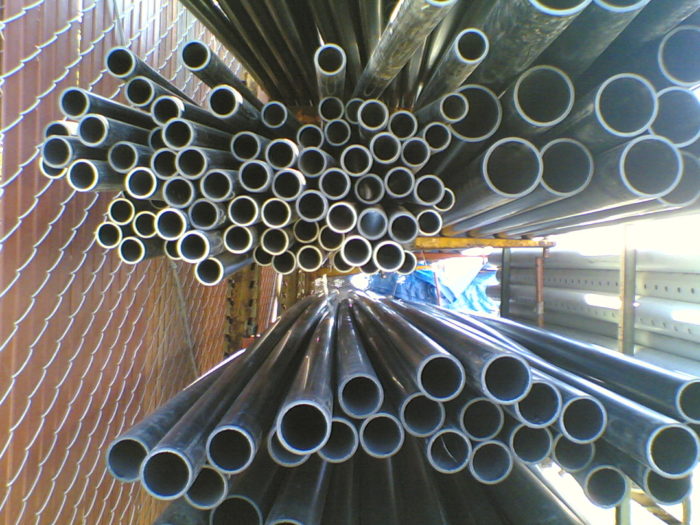
Image Credit: Bob Page via Flickr
Replacing aging water lines will cost U.S. utilities $300 billion over the next decade, according to one industry report, and the prospect of big pay days ahead for pipe and hardware manufacturers has touched off a lobbying battle between the plastics and iron industries.
Bluefield Research said in a report earlier this year the average age of water pipes continues to go up and will reach 45 years by 2020, mostly because utilities have been reluctant to spent the money to replace them. But fears about the safety of public water supplies, highlighted by the Flint, Mich., crisis is pushing local water districts to act.
“The public does not want to think, or even know, about the 1.6 million miles of pipes underground, but hundreds of thousands of water main breaks and lead-tainted water have begun to put a spotlight on this historically overlooked sector,” Bluefield Research President Reese Tisdale said in a prepared statement.
Bluefield expects plastics to be the big winner, with polyvinyl chloride and high-density polyethylene grabbing the lion’s share of the market over the next 10 years, far outpacing concrete, ductile iron and corrugated steel. But the iron industry is pushing back, stressing the durability of its products and attacking the safety of plastic water lines.
Plastics industry pushes for more access
Legislation is pending in five states that would force local governments to consider plastic along with other materials for municipal water projects, The New York Times reports. The effort is being aided by the American Chemistry Council, a trade group that lobbies for the plastics industry. The council, through a spokesman, said the current bidding process in those states — Michigan, Ohio, South Carolina, Indiana and Arkansas — is a “virtual monopoly” that increases project costs and wastes taxpayer dollars.
The industry also has turned to an organization called the American City County Exchange, operating under the American Legislative Exchange Council, The Times said. The Legislative Exchange works for passage of conservative laws by writing model legislation for state legislatures, and the ACCE is promoting a measure that would allow “all proven and acceptable piping materials” be included in water and wastewater bidding.
Plastic piping is as much as 50% cheaper than iron, giving it a big advantage among local utilities trying to squeeze the most out of their budgets. It’s also much lighter and easier to handle. But plastic has some problems, too, including research showing that groundwater pollutants can leach through pipe walls and get into drinking water, particularly as the pipes get older.
The Ductile Iron Pipe Research Association said in a recent news release, “Apple phases out PVC from products. Why is it still used in municipal drinking water projects?” In an article posted at The Hill, association president Patrick Hogan called open competition legislation “a political stunt” that has failed in the 11 states targeted by the plastics industry.
Given the debate, some municipal water districts are turning to what used to be the gold standard for water distribution: copper. Among them is the city of Flint, where lead-laced drinking water piped through lead supply lines affected thousands of children. There, the city is replacing water lines with copper, at a cost of more than $140 million. Fifty miles away, the city of Lansing, Mich., began replacing lead water lines a decade ago, according to an article posted at Next City. Lansing also chose copper.
Weekly Newsletter
Get building science and energy efficiency advice, plus special offers, in your inbox.















0 Comments
Log in or create an account to post a comment.
Sign up Log in